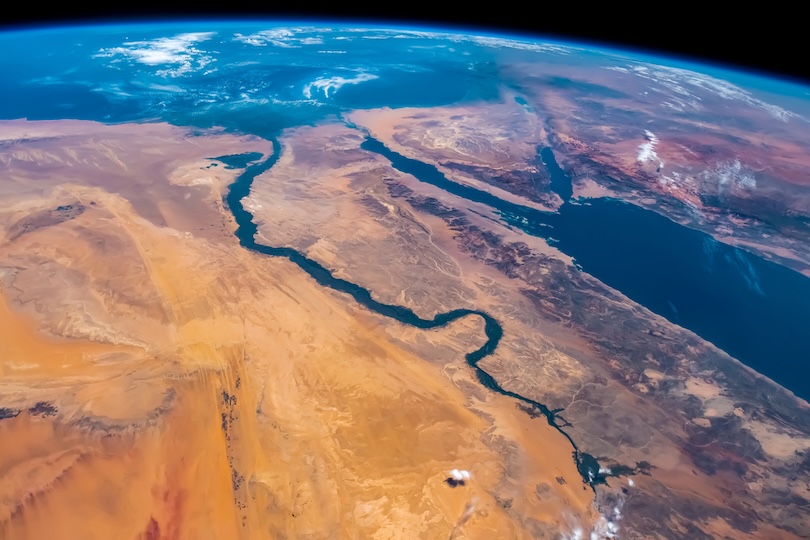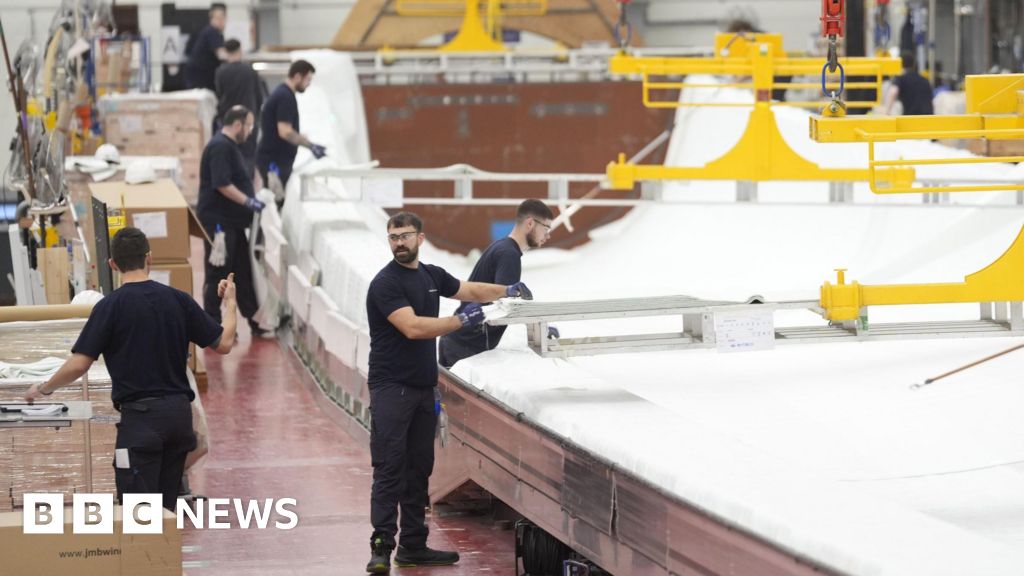The world’s most pressing problems are being solved by the people least affected by them. In conference rooms from Davos to Geneva, decisions about poverty, climate change, and global health are made by those who can afford $400-a-night hotels and whose biggest travel concern is whether their luggage will make the connection. Meanwhile, the people who actually live these challenges, the ones with solutions born from necessity, are locked out by visa requirements, registration fees, and an entire ecosystem designed to keep the conversation comfortably familiar. By familiar, I mean discussions that stay safely within Western paradigms of development and progress, that frame problems through the lens of those who benefit from current systems, and that generate solutions palatable to existing institutions, ensuring that any changes proposed won’t fundamentally threaten the structures that created these challenges.
To visualise this inequity, I posted a satirical cartoon with a Global South professional locked outside a “global” conference. Within hours, my inbox flooded with responses. “I nearly cried when I saw your post,” wrote a colleague from Botswana. “My ideas could change lives, but I couldn’t even get past the visa application process.” Another voice, from a development professional who’d finally made it to a major conference, shared: “Even when I attend, I spend more time translating my thoughts than contributing. The unspoken rules favour one kind of voice.” These aren’t isolated stories. They’re symptoms of a fundamental flaw in how we conduct international convenings.
The international community faces a paradox that goes beyond logistics. It’s about dignity, justice, and whose expertise we value. When we consistently hold climate summits in European capitals, development conferences in Washington D.C., or humanitarian gatherings in Geneva, we’re not just choosing venues. We’re choosing whose voices matter. Consider Amara (name changed for privacy), a climate researcher from Ghana whose groundbreaking work on drought adaptation was praised by peers worldwide. When invited to present at COP negotiations in Bonn, she spent three months navigating visa requirements, only to be denied at the final interview. The reason? The consular officer wasn’t convinced she’d return home. Meanwhile, her European colleagues boarded planes without a second thought. This passport privilege isn’t just about convenience, it’s about power and who gets to shape international discourse.
Geography in international relations is never neutral. It’s political. And the politics and data are startling. According to the Centre for European Reform, in 2022, Schengen countries denied between 40 and 50 per cent of visa applications from Africa’s largest economies (notably Algeria and Nigeria). Behind each statistic is a researcher whose insights we’ve lost, an activist whose solutions we’ll never hear, a practitioner whose lived experience could reshape our understanding. Even when visas are granted and flights are booked, subtler forms of exclusion persist. As one community organiser from the Global South noted in a LinkedIn exchange: ‘I had solutions that work in my community, but when I tried to share them, I was told my presentation wasn’t ‘academic enough.’ They wanted citations, not stories of survival.’ (LinkedIn discussion, 2025).
The dominance of Western English, wrapped in academic jargon and “professional” conventions, creates invisible barriers that are just as effective as visa denials. Local terminology becomes “unscientific.” Indigenous frameworks are deemed “unpolished.” Community knowledge is relegated to “testimonials” while policy advisors from the North fill expert panels. The rise of hybrid conferences promised to democratise access, but many have become sophisticated broadcast events rather than genuine dialogue platforms. Virtual participants often report being sidelined. That is, technically present, but socially and substantively absent. Scheduling frequently privileges the time zones of organisers, rendering participation from regions such as the Pacific effectively impossible without significant personal strain.
Perhaps most troubling is what I call ‘expertise apartheid’. This is the systematic segregation of knowledge based not on its validity or effectiveness, but on the institutional credentials of those who hold it. This creates a rigid hierarchy where a PhD from Oxford studying climate change from air-conditioned offices ranks above a farmer who has successfully adapted crops to shifting rainfall patterns for decades. We’ve created a system where proximity to impact matters less than proximity to power.
This inversion of credibility isn’t accidental. It serves to maintain existing power structures by ensuring that those who benefit from current systems remain the arbiters of change. The result is a profound disconnect between those who study problems and those who solve them. Consider the absurdity: a World Bank consultant who’s never lived in poverty becomes an expert on poverty reduction, while a community leader who’s lifted hundreds out of destitution becomes a ‘case study.’ This isn’t just intellectually dishonest. It’s practically counterproductive. The communities most affected by our global challenges often hold the most innovative solutions. But we’ve built systems that exclude their voices from the rooms where decisions are made.
These aren’t merely logistical challenges, they’re questions of justice that go to the heart of international relations theory and practice. We cannot credibly address climate change, economic inequality, or human rights violations through processes that are financially, linguistically, and structurally inaccessible to the majority of the world’s population. The current system represents “gated multilateralism”. That is, international cooperation that maintains the appearance of global inclusion while preserving fundamental barriers to participation. It’s not just morally questionable; it’s strategically foolish.
Transforming the geography of global governance requires both practical reforms and conceptual shifts. Practically, this means hosting conferences in visa-accessible countries such as Jamaica, which offers visa-free entry to nationals of over 100 countries. Similarly, cities like Bangkok provide frequent, affordable flights and streamlined visa processes for many African and Asian travellers. Kenya, Indonesia, Barbados, Trinidad and Tobago, and South Africa also offer more accessible entry requirements, direct regional connections, and proven track records of safely hosting international gatherings. These locations can meaningfully expand who gets to be in the room. Other practical considerations include extending planning timelines to accommodate visa processing and family logistics, particularly for Global South speakers.
Conceptually, it means funding the full cost of participation. Not just flights, but visas, childcare, data, translation, and accommodation. More fundamentally, it requires reimagining what “global” means in international development. True inclusion demands translating materials into multiple languages, accepting applications in diverse formats beyond Euro-academic conventions, and partnering with local institutions to co-create agendas rather than merely review them. In addition, the hybrid revolution, if done thoughtfully, offers unprecedented opportunities to democratise international dialogue. The technology exists to create truly inclusive spaces, but this requires intentional design, such as equitable time-zone planning, real-time interpretation, moderated discussion for remote voices, and a genuine commitment to participation, not just presence.
Change is already happening. Earlier this year, I witnessed something extraordinary at the Global Climate Finance Forum (GCFF) in Montego Bay, Jamaica, a convening that disrupted the usual script and showed us what inclusive global governance can actually look like. By choosing Jamaica, an accessible country for much of the world, GCFF made a statement before the first session even began. But geography was just the beginning. The organisers co-created the agenda with regional actors, provided targeted support for Global South participants, and designed processes that centred rather than tokenised marginalised voices. The difference was palpable. Instead of the usual parade of panels where U.S. or European experts spoke about climate finance while Global Majority voices offered brief “testimonials,” GCFF created participatory dialogues where ministers, small to medium size enterprise (SME) leaders, and investors shared equal space in small-group sessions.
Post-conference feedback revealed the impact of this approach. As one climate finance practitioner from the Global South noted in the attendee survey: ‘I’ve been to dozens of these conferences, but this was the first time I felt heard, not just invited.’ (GCFF Attendee Survey, 2025). The most compelling solutions didn’t emerge from distant institutions or theoretical frameworks; they came from practitioners rooted in the lived realities of climate vulnerability and financial exclusion. GCFF’s perspective is that those closest to the climate crisis should also be closest to the financial capital needed to solve it. As such, the organizers chose to center voices from those who could concretely speak to innovative solutions emerging from those most impacted. GCFF thus offered a glimpse of what more equitable convenings can look like when we move towards genuine participation.
The blueprint exists. What’s needed now is the will to replicate it. To learn more about the Forum or its convening model, visit the Global Climate Finance Fund social media page. We stand at a crossroads. We can continue reproducing the geographic gatekeeping that undermines our effectiveness and legitimacy, or we can embrace genuinely inclusive approaches to global governance. The voices locked outside our conferences aren’t asking for charity, they’re demanding justice. And justice, in this case, means access to the conversations that shape their futures. The world’s challenges are too urgent, and the stakes too high, for anything less than truly global solutions developed through truly global participation. The question isn’t whether we can afford to change, it’s whether we can afford not to.
If your global conference cannot be accessed by most of the world, it’s not global. It’s time to move the room, open the doors, and share the mic. The planet’s future depends on it.

 Movie
Movie 3 months ago
120
3 months ago
120 





![Presidents Day Weekend Car Sales [2021 Edition] Presidents Day Weekend Car Sales [2021 Edition]](https://www.findthebestcarprice.com/wp-content/uploads/Presidents-Day-Weekend-car-sales.jpg)




 English (United States)
English (United States)